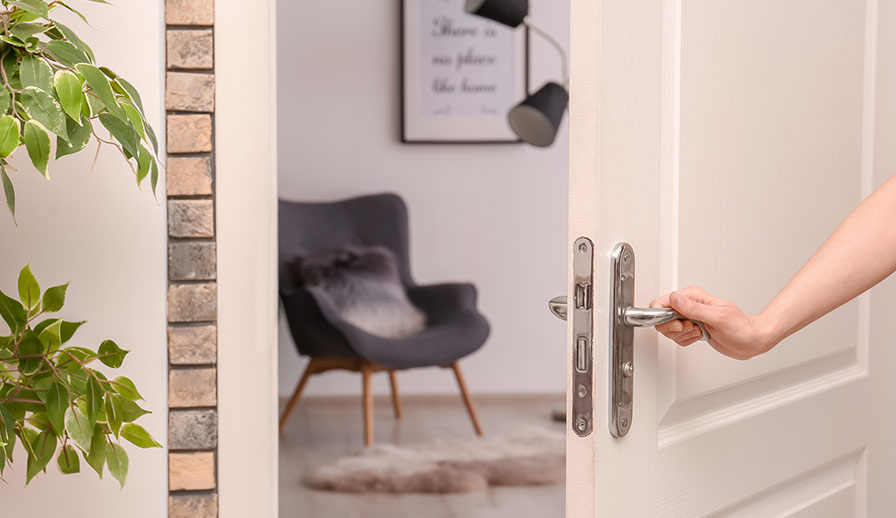REALTORS® Safety: Practical Tips for Working in Real Estate

The real estate industry is built on forming relationships: with your broker and fellow agents, along with prospective, current and past clients.
REALTORS® often find themselves working face-to-face with strangers, in unfamiliar or remote locations. This can mean REALTORS® are put into vulnerable positions at times, so it’s important we empower members to make safety a priority.
While residents in many parts of Canada are being encouraged to stay home as much as possible to help stop community transmission of COVID-19, as part of an essential industry, you may need to occasionally meet with clients or other professionals.
How can you protect yourself from situations where you feel your safety is compromised?
Meeting new clients for the first time
Before meeting a new client (even if they’re a referral), find out as much information about them as possible. Verify their identity to ensure they are who they say they are. In addition to their full name and contact information, you can vet clients on social media or a quick Google search to look for any red flags.
In your car
REALTORS® spend a lot of time in their vehicles. It can be your office, cafeteria, transportation—or your getaway.
Keep your gas tank at least half full, especially when showing rural properties. You don’t want to run out of gas on a dark, deserted road. Stock your car with jumper cables, everything you need to change a tire, a portable phone charger and anything you may need if the weather impacts your drive (for example a shovel and winter clothes for possible winter storms or a pair of rain boots if your area is flood prone).
Whenever possible, park under a light where you can clearly see your car from the property.

General open house safety tips
While some real estate professional might not be conducting in-person open houses right now, it’s important to think about the future. How can you protect yourself if you do need to conduct business in-person? Here are a few tips, which have been adapted from the National Association of REALTORS® Safety Resource Kit:
- Keep it light: If you’re showing a home in-person, try your best to do so during daylight hours. If you’re at a property at night, keep things bright and visible by opening curtains and turning on lights in and outside the home. Tell a colleague or family member what your schedule is and check in if you’re running late.
- Check your cell service: Whenever possible, ensure you have mobile phone reception throughout a property before showing it to new clients. Thick walls in commercial buildings or remote locations for rural properties may interfere with your service.
- Check ins and distress codes: Create a secret word or phrase that will alert your colleague that you feel like you’re in danger. These codes can be worked into a conversation discreetly without raising any alarm bells with the person you’re with. For example, “Hi, this is Jennifer. I’m with Mr. Henderson at the Elm Street listing. Could you email me the RED FILE?”
- It ain’t over till it’s over: Don’t assume everyone has left the premises at the end of an open house. Check all the rooms and the backyard before locking the doors.
- Show, don’t lead: When showing a home, always have your prospect walk in front of you. Don’t lead them, but rather, direct them. You can gesture for them to go ahead of you and say, for example, “The kitchen is on your left.”
- Meet the neighbours: If you think it may be some time before a property sells, get acquainted with a few of the immediate neighbours. You will feel better knowing they know your vehicle. On the flip side, they will feel better knowing the stranger (you) who frequently visits their neighbourhood.
- Plan ahead: Before showing a property for the first time, take a few minutes to check each room and determine at least two “escape” routes. Make sure all deadbolt locks are unlocked to provide easy access outside, should you feel unsafe.
- Don’t use the “V” word: When describing a listing, never say a property is “vacant.” This could be an invitation for criminals. Always view vacant properties during daylight hours. Look for signs that someone may have broken in or is living in the vacant property before you enter (open or broken windows, graffiti on the walls or trash in the corner, for example).
When possible, ask open house guests to sign in or leave business cards so you know who was in the house and approximately when.
Another way to keep yourself out of a potential vulnerable position, alone at an open house is to take advantage of digital tools available to REALTORS®.
Staying safe during the COVID-19 pandemic
We understand many of you are still having in-person interactions so we recommend following basic public health measures:
- practice physical distancing;
- wear a mask;
- frequently wash your hands (or use hand sanitizer); and
- avoid touching your eyes, nose or mouth with unwashed hands.
You should also disinfect high-traffic surfaces at your office or a property you’re working at.
Note: We recommend REALTORS® refer to Health Canada or other local public health authorities for up-to-date guidelines, restrictions and precautions regarding COVID-19.
More safety tips can be found on REALTOR Link® or you can read our Spotlight on Safety.
For additional safety resources, visit the REALTOR® Safety Program Resources from our friends to the South, the National Association of REALTORS®.
Have a safety tip you’d like to share with your fellow REALTORS®? Leave it in the comments below.





